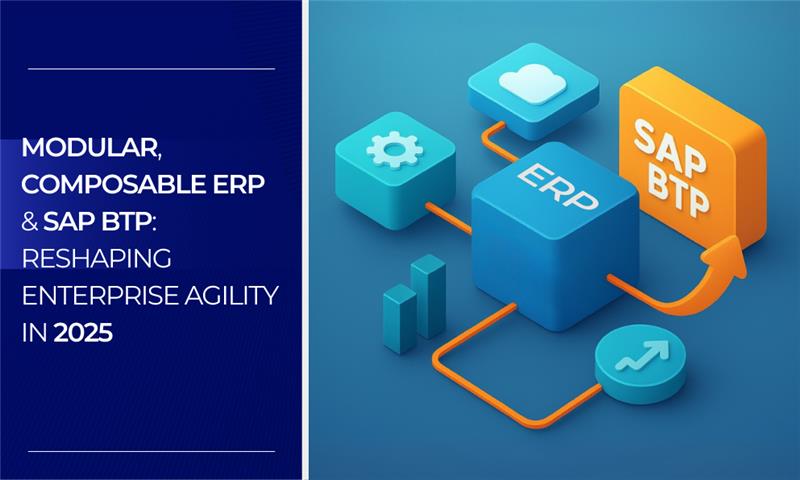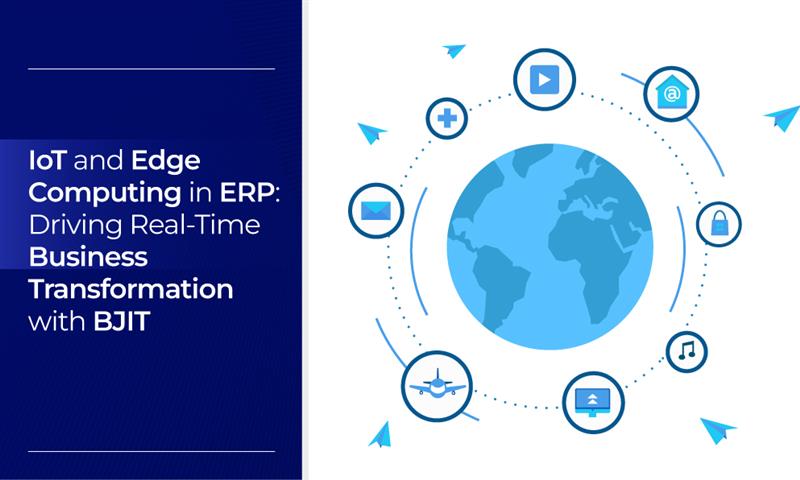Introduction
Enterprise Resource Planning (ERP) systems have transformed how businesses operate across industries by integrating critical functions such as accounting, sales, supply chain, inventory, and customer relationship management into a single unified platform. Traditionally associated with large corporations, ERP adoption has accelerated globally among small and medium-sized enterprises (SMEs) as digital transformation becomes increasingly essential for competitiveness. In Canada, ERP systems have grown significantly, with an average annual growth rate of 42% and over 171% growth in the past four years, reflecting a strong demand for centralized, automated, and scalable business solutions (Display Canada Market Analysis, 2025).
Ontario and Quebec, Canada’s two most economically significant provinces, are leading this trend. Together, they account for 65% of active ERP clients, with Ontario ranking first in ERP-related downloads and Quebec close behind (Display Canada Market Analysis, 2025). This demonstrates not only the appetite for ERP solutions but also the enormous potential for SMEs in these provinces to leverage ERP for growth.
This blog explores the drivers of ERP growth in Canada, the unique opportunities for SMEs in Ontario and Quebec, the role of Odoo as a preferred ERP choice, and the challenges SMEs face in ERP adoption. By highlighting academic perspectives, industry trends, and real-world case studies, this article provides a roadmap for Canadian SMEs looking to adopt ERP systems as part of their digital transformation journey.
ERP Adoption in Canada: Macro Trends
ERP adoption in Canada reflects broader global trends in digital transformation. In 2021, more than 52% of Canadian businesses reported transitioning to cloud-based systems, with ERP representing a major segment of this shift (Market Research Future, 2021). This adoption is driven by multiple factors:
- Scalability and Flexibility – Cloud ERP solutions allow businesses to start with core modules and scale as they grow, a critical advantage for SMEs with limited budgets.
- Cost Efficiency – Subscription-based licensing models make ERP affordable for SMEs compared to traditional on-premises solutions.
- Regulatory Compliance – Provinces like Quebec emphasize industry-specific compliance, making ERP systems essential for maintaining accurate reporting and data traceability.
- Remote Access and Mobility – The COVID-19 pandemic accelerated the need for cloud ERP to support remote work and mobile operations (Oakivo, 2025).
- Data Integration and Analytics – ERPs improve decision-making by consolidating fragmented systems into one centralized data hub.
Moreover, ERP adoption is particularly strong in industries such as manufacturing, retail, logistics, and healthcare, which dominate Ontario and Quebec’s economies. A study by Sharma et al. (2022) notes that ERP adoption in SMEs significantly enhances operational efficiency, data visibility, and competitiveness, supporting the argument that SMEs are becoming the new frontier for ERP providers.
Ontario and Quebec: Economic Landscapes and SME Profiles
Ontario
Ontario is Canada’s largest provincial economy, contributing more than 38% of the national GDP (Statistics Canada, 2024). The province’s SME ecosystem is diverse, spanning manufacturing, finance, healthcare, and retail. According to Odoo’s analytics, Ontario leads the nation in ERP downloads and generates over 285,000 visitors to Odoo.com, highlighting a strong awareness and demand for ERP platforms (Display Canada Market Analysis, 2025).
Ontario’s manufacturing sector, in particular, has a strong need for ERP. The province accounts for nearly half of Canada’s manufacturing GDP, with SMEs dominating the supply chain. For these businesses, ERP ensures process automation, inventory control, and compliance with international trade standards. Similarly, Ontario’s growing financial and retail industries benefit from ERPs that streamline transactions, customer relationships, and regulatory reporting.
Quebec
Quebec’s economy is equally dynamic, driven by manufacturing, aerospace, artificial intelligence, healthcare, and logistics (Government of Quebec, 2024). Quebec ranks second in ERP adoption, generating over 277,000 visits to Odoo.com and accounting for 39% of Canada’s active ERP clients (Display Canada Market Analysis, 2025).
SMEs in Quebec face unique challenges, such as language and compliance requirements. The province’s bilingual context demands ERP solutions with multilingual interfaces and documentation, while industries such as healthcare and aerospace require strict compliance with ISO and local regulations. ERP platforms like Odoo are well-suited to address these challenges due to their configurability and modular design.
Collectively, Ontario and Quebec are the epicenters of ERP adoption in Canada, making them fertile ground for both ERP vendors and implementation partners.
Why SMEs Are Embracing ERP
Historically, SMEs were hesitant to adopt ERP due to cost, complexity, and implementation risks. However, recent research shows that SMEs are increasingly adopting ERP systems because of affordability, scalability, and competitive necessity (Sharma et al., 2022). In fact, 85% of multi-year ERP contracts in Canada are with companies having fewer than 50 users (Display Canada Market Analysis, 2025).
Key Drivers for SME ERP Adoption:
- Affordable Scalability
Modern ERP platforms like Odoo offer modular pricing, enabling SMEs to start with accounting or CRM and expand into inventory, HR, or manufacturing as needed.
- Faster Return on Investment (ROI)
ERP solutions now emphasize rapid implementations. SMEs can go live within weeks, achieving measurable ROI in months rather than years (Oakivo, 2025).
- Data-Driven Decisions
ERP provides real-time dashboards and analytics, empowering SMEs to make decisions on production, inventory, and customer engagement.
- Process Automation
From invoicing to payroll, automation saves SMEs valuable time, allowing them to focus on growth rather than administration.
- Competitive Advantage
With larger enterprises already using ERP, SMEs adopting ERP gain the ability to compete on equal footing, especially in export-heavy industries like manufacturing and aerospace.
Odoo ERP: A Strategic Fit for Canadian SMEs
Among ERP platforms available in Canada, Odoo has emerged as a leading choice. With an estimated 38.5% market share in Canadian ERP deployments (WMTips, 2024), Odoo is known for its affordability, modularity, and robust partner ecosystem.
Advantages of Odoo for SMEs in Ontario and Quebec:
- Modular and Flexible – Odoo’s 40+ integrated modules allow SMEs to start with essentials and scale at their own pace.
- User-Friendly Interface – Designed with simplicity, Odoo is intuitive for employees with limited technical expertise.
- Cloud-First Hosting – Over 68% of Canadian SMEs prefer Odoo-hosted solutions (Odoo.sh or Online) for cost-efficiency and reliability (Display Canada Market Analysis, 2025).
- Bilingual and Localized Features – Odoo supports English and French, making it ideal for Quebec’s business environment.
- Partner Ecosystem – Local partners like Syncoria and Macrofix have successfully implemented Odoo for SMEs in retail and manufacturing, cutting reconciliation times and improving efficiency (Zaheer, 2023).
Academic research supports these benefits. Masek et al. (2021) argue that SMEs adopting open-source ERP systems like Odoo benefit from reduced total cost of ownership, faster learning curves, and higher adaptability compared to traditional ERP systems such as SAP or Oracle.
Challenges in ERP Adoption for SMEs
Despite the growth, ERP adoption in SMEs is not without risks. Case studies and real-world experiences reveal several challenges:
- Implementation Costs – While modular ERP is affordable, customization can inflate costs. Some Canadian SMEs reported spending over $40,000 without achieving satisfactory outcomes (Reddit, 2024).
- Compliance Complexity – ERP systems must adapt to local tax rules (e.g., GST/HST, Quebec sales tax).
- Partner Dependence – Poorly qualified ERP partners can derail implementations, leading to wasted resources.
- Change Management – SMEs often struggle with staff training and resistance to adopting new systems (Arxiv, 2024).
Mitigation Strategies
- Select Experienced Partners – Choosing Odoo Gold or Silver partners with industry experience ensures smoother rollouts.
- Start Small – Begin with core modules like invoicing and CRM, then expand incrementally.
- Leverage Government Grants – Programs such as the Canada Digital Adoption Program (CDAP) provide subsidies for ERP adoption.
- Invest in Training – ERP success depends not just on technology but on employee competence and acceptance.
Conclusion
ERP adoption in Canada is accelerating, particularly among SMEs in Ontario and Quebec. With 42% annual growth rates and increasing interest from SMEs, these provinces are leading Canada’s digital transformation. For SMEs, ERP is no longer a luxury but a necessity to remain competitive in industries such as manufacturing, retail, healthcare, and logistics.
Odoo ERP, with its modularity, affordability, and strong partner ecosystem, stands out as an ideal choice for SMEs in these regions. However, successful adoption requires careful planning, the right partners, and employee engagement.
For SMEs in Ontario and Quebec, the message is clear: ERP adoption is the gateway to operational excellence, scalability, and long-term competitiveness. With the right strategy and support, SMEs can leverage ERP systems to unlock growth opportunities and position themselves as leaders in Canada’s evolving digital economy.
👉 If your business is ready to explore ERP, BJIT offers expert Odoo implementation tailored to Canadian SMEs. Contact us today to begin your digital transformation journey.
References
- Arxiv. (2024). Digital competence and ERP adoption in SMEs. Retrieved from https://arxiv.org/abs/2406.01615
- Display Canada Market Analysis. (2025). Canada – Market Analysis. Internal report.
- Market Research Future. (2021). Canada ERP Software Market Report. Retrieved from https://www.marketresearchfuture.com
- Masek, J., Novak, R., & Sima, J. (2021). Open-source ERP systems as a driver of SME digitalization. Journal of Information Systems, 35(2), 89–102.
- Oakivo. (2025). Overcoming digital transformation challenges in Canadian SMBs. Retrieved from https://www.oakivo.ca/blog
- Sharma, P., Singh, R., & Gupta, V. (2022). ERP adoption in SMEs: Drivers, barriers, and outcomes. International Journal of Enterprise Information Systems, 18(4), 45–63.
- Statistics Canada. (2024). Provincial GDP at basic prices, by industry. Retrieved from https://www150.statcan.gc.ca
- WMTips. (2024). ERP technologies usage in Canada. Retrieved from https://www.wmtips.com
- Zaheer, F. (2023). Empowering Canadian SMEs with Odoo. Canadian SME Magazine.









